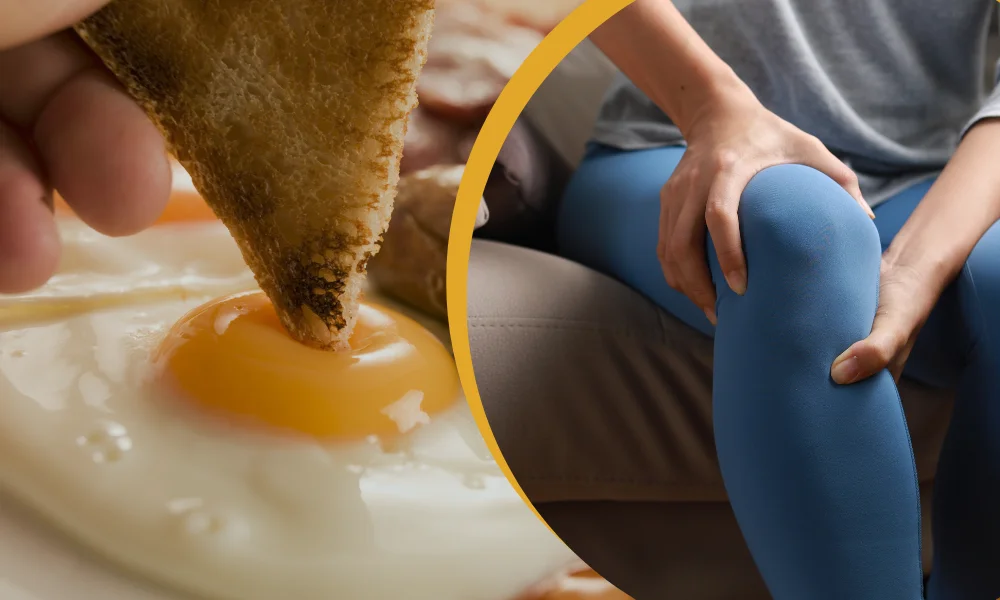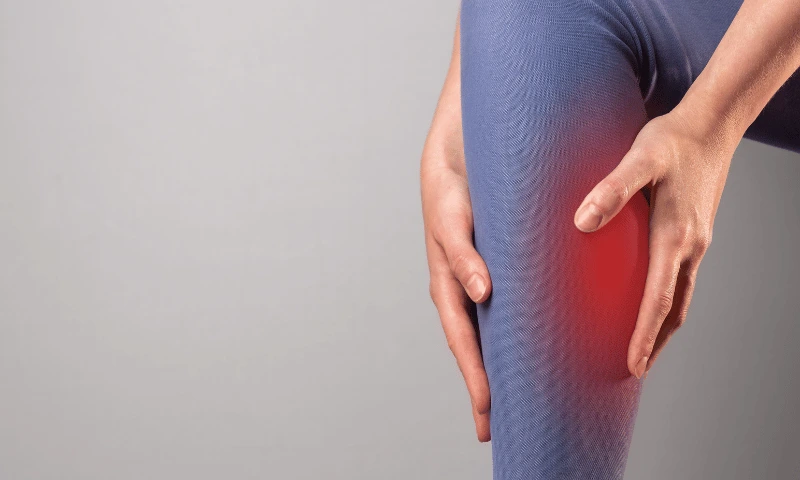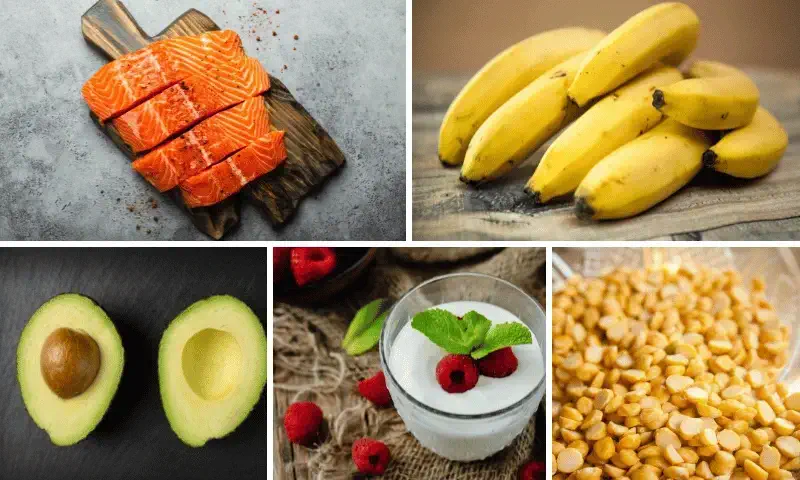
21 Sep What Foods can Cause Leg Cramps at Night? 10 Foods You Must Avoid
Envision you’re sleeping and all of a sudden there’s fierce pain in one of your legs. The locked calf muscle and a sense of zinging feeling in your entire leg are spine-chilling.
These are nocturnal leg cramps that around 60% of adults claim to experience.
You might not have guessed it, but what causes severe leg cramps at night also includes food choices and vitamin deficiency. Yes, foods can cause leg cramps at night, so what you need to be taking care of is your dinner plans.
That’s right!
While most people often automatically switch to fluids when trying to avoid leg cramps, it feels quite a crime to know that one can consider either avoiding or including certain foods to avoid leg cramps. It’s that simple!
Here are some facts that might make you pay closer attention to what you are eating for dinner and how it might be causing you an insufferable amount of pain.
What Foods Can Cause Leg Cramps at Night? – 10 Foods to Avoid

A sudden jolt from a cramp may compel you to wake up in the middle of the night. Though it’s easy to blame the exercise routine or dehydration for the annoying Charley Horse, overlooking your diet would be a mistake.
Unfortunately, certain foods trigger the inflammatory responses of the body ultimately leading to muscle seizes and tightness.
Avoiding these foods at dinner can help win over uncomfortable and painful muscles naturally.
#1. Red Meat
If you’re a fan of including red meats such as ham, beef, or steak in dinner regularly, nothing is surprising about leg cramps at night.
Red meats are high in purines that can build up in the body and cause uric acid to convert into crystals. These crystals then give rise to inflammation and result in muscle spasms. In fact, red meat is one of the most common inflammation foods there is.
So, next time you encounter yourself repeating red meats at dinner, get ready to witness leg cramps.
#2. White Bread
The staple food for anyone trying to save time and feel full at the same time is white bread. However, including white bread in the last meal of your day might not be a wise decision.
White breads come under high-glycemic Index foods which fuels the production of advanced glycation end (AGE) leading to inflammation.
Additionally, white bread is nothing but refined flour which metabolizes much faster as compared to unrefined flour and spikes the blood sugar level.
This impulsive upsurge contributes to insulin resistance and inflammation, thus, adding to the possibility of nighttime muscle/leg cramps.
Reports published in the Journal of the Canadian Chiropractic Association indicate Musculoskeletal Effects of Diabetes Mellitus include muscle cramps.
The cramps are common in the lower extremities and are more common at night.
#3. Dairy Foods
Drinking milk is good, but would you still advocate its benefits after discovering it might be the reason behind those severe leg cramps?
Well, undoubtedly milk has enough nutrients to keep health top-notch. However, it is rich in casein and whey protein. These proteins, when consumed in excess, can irritate muscles and lead to cramps.
Also, 1 glass of milk contains more than 20% protein, and excess protein can further cause dehydration and thus muscle cramps.
Therefore, as dairy foods can cause muscle cramps at night what you need to do is consume it in a limited quantity.
#4. Tea and Coffee
Next on our list of what foods can cause leg cramps at night is probably everyone’s favorite; tea and coffee.
Both of these beverages contain large amounts of caffeine which directly affects the nervous system. Adding to it, an overdose of caffeine discourages muscles from relaxing and, as a result, leads to involuntary muscle contractions and cramps.
Not to mention, excess caffeine intake also adds to the causes of dehydration due to frequent urination. This can lead to depletion in fluids and minerals and thus, muscle spasms.
In fact, reports of the special issue published in the Neuromuscular Disorders also conclude that caffeine can increase susceptibility to muscle cramps.
Also, caffeine is often the most preferable food and drink choice for night owls. Sadly, there is a clear link between insomnia or sleep loss and muscle cramps. Lack of sleep deters muscle relaxation, ultimately leading to cramps.
Therefore, the habit of consuming coffee, tea, or any caffeinated beverages, particularly after having dinner is actually causing you muscle cramps at night.
#5. Citrus Fruits
People who often brag about their habit of eating citrus fruits after dinner need to be careful.
Fruits such as lemon, pomelo, orange, and grapefruits are rich in vitamin C and their excess consumption can trigger inflammation.
Though they are a healthy option and one must include them in their daily diet, some of them can actually trigger a detox reaction and aggravate things for the worse.
#6. Excessive Salt
Some people have the habit of adding extra salt to their well-seasoned food. If you fall under this category, better be aware of its negative effects on muscles.
Salty foods can cause muscle cramps at night!
Salt is rich in sodium which is widely distributed in natural as well as processed foods.
While muscle cramps predominantly occur due to sodium deficiency, some researchers believe that an imbalance in sodium-potassium levels leads to muscle cramps. This has been corroborated by a paper published in the International Journal of Environmental Research and Public Health.
To explain, sodium is responsible for muscle contraction whereas, potassium helps relax the muscles. As a result, even if you’re eating home-cooked foods and experiencing leg cramps at night, it’s the excess salt that’s adding to the muscle cramps at night.
Not to mention, processed foods with added salt should be on the list of foods to avoid for leg cramps.
#7. Eggs
Thinking about replacing red meats with eggs? Well, you might like to read this first.
Eggs have the same pro-inflammatory impact as red meats. Notably, eggs contain arachidonic acid. This acid, when broken down by the body, may lead to the formation of inflammatory prostaglandins in some individuals.
This hormone-like substance is responsible for several bodily functions including inflammation and contractions.
As per the reports of a study published, arachidonic acid metabolites are involved in causing muscular pain and inflammation.
Not only this, eggs have high amounts of saturated fats that are also directly responsible for triggering inflammation.
So, even if an eggetarian, be sure to include a limited number of egg-rich foods in your dinner diet to avoid leg cramps at night.
#8. Nightshade Vegetables
Haven’t heard of it yet? Nightshade vegetables include potatoes, tomatoes, and aubergine.
Notably, nightshades are calcinogenic plants; which means they cause calcinosis or calcification of soft tissues when eaten by animals.
This happens because nightshade vegetables contain calcitriol which is an end product of vitamin D metabolism in humans.
Now while the body requires calcitriol to maintain bone density, it signals the kidney to absorb calcium from the diet and thus, its high quantity can have adverse effects.
Overconsumption of nightshade vegetables evades the kidney’s ability to evade calcium deposits in the soft tissues, ligaments, and tendons. This will lead to inflammation and muscle spasms.
Further, nightshades particularly potatoes and eggplants naturally produce solanine as a defense mechanism from insects, disease, and predators. The production of this glycoalkaloid increases in the presence of direct sunlight which makes the potatoes turn green.
Solanine and related glycoalkaloids inhibit the breakdown of acetylcholine and increase the level and duration of neurotransmitters. This as a result causes prolonged muscle contraction.
#9. Sugar
Puddings, pastries, and pies are drool-worthy, but let these desserts add sweetness only to special occasions.
Foods high in sugar are popularly known to accelerate inflammation and cause muscle cramps.
To explain, the body requires glucose for muscles to contract and relax properly. And just like how the body requires a good balance of electrolytes for proper muscle functioning, just the right quantity of glucose is also needed.
While low blood sugar level makes the muscle starve and give rise to cramps, high blood sugar levels encourage glucose intolerance and cause the excretion of glucose along with salts via water, leading to a reduction in the number of electrolytes.
So, not only salty but also sugary foods are among what cause leg cramps at night.
#10. Vegetable Oils
If you like to use quite a few tablespoons of vegetable oil for cooking, it’s time to stop right now.
Vegetable oils like canola oil, soyabean oil, corn oil, olive oil, safflower oil, and sunflower oil are parts of every household’s daily cooking.
However, what’s concerning is that consuming it daily can cause inflammation and impact your muscles leading to cramps.
Notably, vegetable oils are rich in Omega 6 which though good for brain health, has pro-inflammatory properties.
Adding to it, omega-6 oils have a low-temperature threshold and thus, become toxic in the process of cooking.
Therefore, regular use of vegetable oils or any such food rich in omega 6 should be either avoided or balanced out with omega 3-rich foods.
Making these foods part of your regular dinner diet can be the real cause of leg cramps at night.
However, apart from these, nutritional deficiencies also contribute to muscle twitching and cramps.
Nutrient Deficiency for Leg Cramps at Night

Those who are trying to lose weight or are into bodybuilding and who like to sweat like a pig while doing gym workouts need to pay special attention to this section.
Are you dieting to lose weight and get back to your fittest self? Be sure you’re not lacking the nutrients.
Only cutting back on foods that cause leg cramps at night is not enough. You actually need to revamp it with nutritional replacements.
This is because some vitamin and mineral nutritional deficiencies can also trigger nocturnal leg cramps. A disbalance in different trace minerals and vitamins can easily initiate leg cramps.
These nutrients include Vitamin B, vitamin D, magnesium, potassium, and calcium.
#1. Vitamin B
A deficiency of B vitamins particularly vitamin B1 and vitamin B12 can lead to muscle issue which includes muscle cramps.
Though deficiency of vitamin B1 is very rare, one might get affected by it, in case of alcoholism or lack of enough milk consumption.
Additionally, a deficiency of vitamin B12 or Cobalamin is a more common cause of leg cramps. It affects nearly 1.5 to 15% of Americans who ditch nutritional foods like eggs and milk for junk foods.
Talking about the scientific support, the reports of the Neurological Clinics, deficiency of vitamin B1 or Thiamine associated with aching and cramping in the lower legs.
Another study mentions muscle cramps as one of the prevalent symptoms of vitamin B12 deficiency.
#2. Vitamin D
The sunshine vitamin is also called antirachitic vitamin because of its ability to prevent rachitic where a person gets affected with vitamin D deficiency called rickets.
Notably, vitamin D increases the bioavailability of calcium and helps in the Calcification of osteoblast cells for skeletal structure.
Adding to it, vitamin D deficiency naturally starts to take place in women after the age of 30. As per the reports of a cross-sectional study where 382 healthy employed women were assessed, vitamin D deficiency was prevalent from 12.94% to 62%.
The deficiency was more common among younger subjects and associated with a lack of sunlight at home and consumption of anti-hypertensive medications.
Further, according to the International Journal for Vitamin and Nutrition Research, the symptoms of vitamin D deficiency include depression, tingling, leg cramps, and body and muscle pain.
#3. Magnesium
Magnesium is the fourth most abundant mineral in the body required for nearly 300 bodily functions. So, clearly, a deficiency of this mineral is bound to have an adverse effect and one of them is muscle/leg cramps.
Frequent leg cramps may take place if you have magnesium deficiency. Athletes lose plenty of magnesium via sweating and therefore repeatedly experience a cramping feeling.
As per the summary of the review Magnesium for Skeletal Muscle Cramps, magnesium is one of the essential minerals required by the human body for nerve transmission and nerve contraction.
Additionally, as per Epidemiological data, leg cramps are mostly experienced by older people, pregnant women, and athletes, and a large population of them lack vitamin D, choline, and magnesium.
#4. Electrolytes
Sodium, potassium, and chloride are the electrolytes required by the body and breaks into ion when dissolved in water. It keeps the numbness tingling feeling and muscle spasms at bay.
Deficiency of electrolytes i.e. sodium, potassium, and chloride can occur if you are losing too many fluids, not drinking enough water, or have vomiting or diarrhea.
Electrolytes specifically potassium deficiency is common among people. Adding to it, lack of sodium along with dehydration makes the contracts the spaces between the muscle cells. This puts pressure on the nerve terminal and thus, give rise to painful feeling.
Not to mention, reports of various studies suggest that sodium imbalance affects the health and performance of athletes. It also mentions theories that an electrolyte imbalance, especially sodium, contributes to the development of muscle cramps.
#5. Calcium
Even though calcium also comes under the definition of electrolytes, it needs special mention because of its impact on the muscles.
Calcium transmits the signals to the nerves for muscle contraction. Although calcium deficiency cannot be pointed out immediately, the longer the deficiency lasts, the more often you’ll witness muscle cramps.
Notably, cramps in the back and legs are the first symptom of calcium deficiency. Adding to it, calcium deficiency changes throughout life and therefore one needs to improve the calcium intake depending upon the body’s requirements.
People often focus on food and exercise and tend to overlook nutritional deficiencies. However, with more GMO foods, our plates lack nutrients. It is also crucial to consider that with increasing age, the human body stops stimulating the natural production of certain minerals.
Consequently, more people are experiencing its effects such as muscle spasms and twitching.
It would be wise to not only avoid but also include foods that calm muscle cramps at night.
What Foods Help Leg Cramps at Night?

It’s quite evident that diet and what foods you include or avoid impact leg cramps at night.
Adding to this, some nutritional deficiencies are also to be blamed.
However, the good thing is that all these shortfalls can be easily covered by including just the right grub.
So, if determined to get rid of those painful leg cramps at night, why not keep their cause at bay by including these foods in dinner?
#1. Bananas
Apart from making your taste buds dance with the best desserts, bananas are also capable of relaxing your muscles.
Bananas are rich in potassium, magnesium, and calcium; therefore, naturally, it fulfills the requirement of electrolyte in the body.
To elaborate, one serving of banana offers 450mg of potassium and up to 33% of the daily value of vitamin B6. Notably, both of these nutrients are essential for getting rid of muscle cramps.
#2. Avocados
Toast and avocados might seem too trendy for you to add to your breakfast. But for your information, avocados have many benefits and are really effective when it comes to treating muscle cramps.
It is rich in cramp-crushing nutrients potassium and magnesium. So, next time don’t hesitate to add avocados to your dinner.
Mix this creamy fruit either in your salad or make guacamole and include it with your favorite dinner recipes.
#3. Salmon
To be honest, Salmon is loaded with nutrients and it includes protein, vitamin D, potassium, b vitamins, and magnesium as well. It is rich in all the required vitamins for leg cramps at night.
If you don’t like salmon, you might just start to after learning about its nutritional value.
A 3-ounce portion of cooked salmon has 326 milligrams of potassium and 56 milligrams of sodium. Also, you get 127% and 56% of the DV of the vitamins B12 and B6 from 3 ounces of cooked wild salmon.
Clearly, eating salmon in your dinner can be beneficial for your muscle cramps at night.
Are you thinking about your dietary choices? You better do.
#4. Greek Yogurt
There has to be a reason why Asians have been consuming yogurt religiously every day.
Greek yogurt has a lot of nutrients that assist in aiding muscle cramps. This dairy product is high in potassium, calcium, and phosphorus. Not to mention, green yogurt is loaded with the benefits of probiotics.
Additionally, it replenishes the daily requirement value of other vitamins and minerals as well as prevents their deficiency, leading to protection from muscle cramps.
For instance, 200 grams of unsweetened Greek yogurt serves:
- 43% DV of Vitamin B12
- 18% DV of Calcium
- 22% DV of Phosphorus
- 6% DV of Potassium
Not to mention, it’s a great addition to the post-workout diet for athletes to improve muscle mass and strength as well.
#5. Lentils
How can you forget about adding lentils?
In case you don’t know, lentils or any other type of legumes are rich in protein and magnesium. In fact, to be precise, 1 cup of cooked lentils contains 71 milligrams of magnesium.
Therefore, these make it to the list of foods to avoid muscle cramps. Further, lentils are a great addition to your dinner plate because it keeps you fuller for longer as well. As a result, you also don’t have to worry about the midnight cravings.
Mix it in your salad or simply make lentil soup and your dinner is sorted.
Make sure to add these nutrients to your diet and you will never have to wake up in the middle of the night with agonizing leg cramps.
Last Spasm
While muscle cramps are absolutely normal, nobody likes to experience sudden seizing and tightness in any part of the body.
Notably, most of the time muscle spasms and muscle cramps are painless. However, they are undoubtedly uncomfortable, especially when it comes to the incidence of leg cramping at night.
As important as it is to know what foods can cause leg cramps at night, it is equally crucial to consider the deficiency of vitamins for leg cramps at night.
Whether or not you’re an athlete, if leg cramps at night are happening more frequently, try making some careful dietary choices for your dinner.
Last but not least drink plenty of water to keep your muscles hydrated it is the best drink to prevent muscle cramps.
Most of the time dehydration is the only reason why people get to feel muscle spasms and muscle cramps at night.
However, if nothing seems to improve your condition, make sure to let your doctor know about your situation.



No Comments